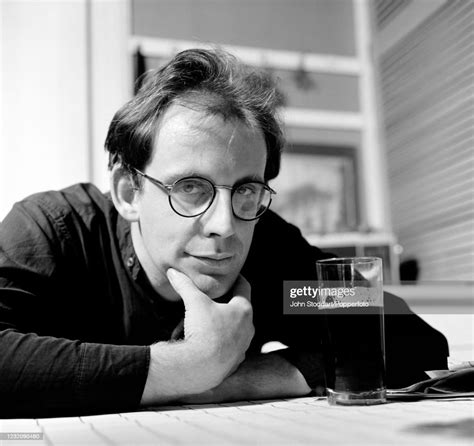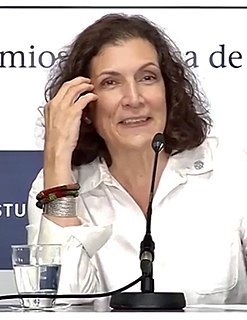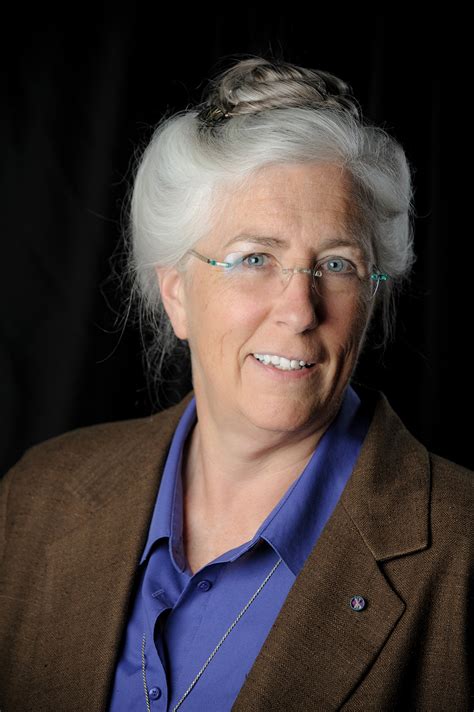A Quote by Madison Smartt Bell
Jeremy Popkin's collection of first-person narratives of the Haitian Revolution is an extremely valuable work, accessible, sound and intelligent. I only wish such a book had been available fifteen years ago when I was in the early stages of researching my series of novels. Popkin has been deft and tactful in stitching together these excerpts, and as a result, he manages to tell a complete version of the Revolution almost entirely in the words of the people who experienced it-this book engaged me deeply.
Quote Topics
Accessible
Almost
Available
Been
Book
Collection
Complete
Deeply
Early
Engaged
Entirely
Experienced
Extremely
Fifteen
Fifteen Years
First
First-Person
Had
Haitian
Haitian Revolution
Intelligent
Jeremy
Me
Narratives
Novels
Only
People
Person
Researching
Result
Revolution
Series
Sound
Stages
Stitching
Tell
Together
Valuable
Version
Wish
Words
Work
Years
Years Ago
Related Quotes
As to the history of the revolution, my ideas may be peculiar, perhaps singular. What do we mean by the revolution? The war? That was no part of the revolution; it was only an effect and consequence of it. The revolution was in the minds of the people, and this was effected from 1760 to 1775, in the course of fifteen years, before a drop of blood was shed at Lexington.
I do write, but for now I am keeping it all in the desk drawer. I have always written. The only book that I have published was "Revolution," during the election campaign, a book that contains both personal and political chapters. I have never been happy with what I have written, including three novels that, from my point of view, are incomplete.
First, what is a revolution? Sometimes I'm inclined to believe that many of our people are using this word "revolution" loosely, without taking careful consideration [of] what this word actually means, and what its historic characteristics are. When you study the historic nature of revolutions, the motive of a revolution, the objective of a revolution, and the result of a revolution, and the methods used in a revolution, you may change words. You may devise another program. You may change your goal and you may change your mind.
I think that almost every scene was an exploration - it was never going to be just what’s on the page. So I know I was very lucky - we all were - to work with a cast of this caliber. These are extremely experienced and intelligent actors, who are also deeply emotional and - as you say - are also engaged in the world.
Taken as a whole, the Chinese revolutionary movement led by the Communist Party embraces the two stages, i.e., the democratic and the socialist revolutions, which are two essentially different revolutionary processes, and the second process can be carried through only after the first has been completed. The democratic revolution is the necessary preparation for the socialist revolution, and the socialist revolution is the inevitable sequel to the democratic revolution. The ultimate aim for which all communists strive is to bring about a socialist and communist society.
The word 'revolution' first brings to mind violent upheavals in the state, but ideas of revolution in science, and of political revolution, are almost coeval. The word once meant only a revolving, a circular return to an origin, as when we speak of revolutions per minute or the revolution of the planets about the sun.
Muhammad was a prince; he rallied his compatriots around him. In a few years, the Muslims conquered half of the world. They plucked more souls from false gods, knocked down more idols, razed more pagan temples in fifteen years than the followers of Moses and Jesus did in fifteen centuries. Muhammad was a great man. He would indeed have been a god, if the revolution that he had performed had not been prepared by the circumstances.
The burning of a book is a sad, sad sight, for even though a book is nothing but ink and paper, it feels as if the ideas contained in the book are disappearing as the pages turn to ashes and the cover and binding--which is the term for the stitching and glue that holds the pages together--blacken and curl as the flames do their wicked work. When someone is burning a book, they are showing utter contempt for all of the thinking that produced its ideas, all of the labor that went into its words and sentences, and all of the trouble that befell the author . . .
A revolution is bloody. Revolution is hostile. Revolution knows no compromise. Revolution overturns and destroys everything that gets in its way. And you, sitting around here like a knot on the wall, saying, “I’m going to love these folks no matter how much they hate me.” No, you need a revolution. Whoever heard of a revolution where they lock arms, as Reverend Cleage was pointing out beautifully, singing “We Shall Overcome”? Just tell me. You don’t do that in a revolution. You don’t do any singing; you’re too busy swinging.
I was fifteen when I first met Sherlock Holmes, fifteen years old with my nose in a book as I walked the Sussex Downs, and nearly stepped on him. In my defense I must say it was an engrossing book, and it was very rare to come across another person in that particular part of the world in that war year of 1915.
I think that most people don't think in terms of an American revolution, they think in terms of a Russian revolution, or even a Ukrainian revolution. But the idea of an American revolution does not occur to most people. And when I came down to the movement milieu seventy-five years ago, the black movement was just starting, and the war in Europe had brought into being the "Double V for Victory" [campaign]: the idea was that we ought to win democracy abroad with democracy at home. And that was the beginning of an American revolution, and most people don't recognize that.
Being goal-oriented instead of self-oriented is crucial. I know so many people who want to be writers. But let me tell you, they really don't want to be writers. They want to have been writers. They wish they had a book in print. They don't want to go through the work of getting the damn book out. There is a huge difference.
I disagree that Blood Will Out is a memoir in the conventional sense. It's the story of a relationship, primarily, not an individual. The "me" in the book is a specialized version of me, the person who Clark manipulated and fooled. I could cover the same years of my life from an entirely different perspective in another book, by concentrating on my experience as a husband, say. But I was selective. I focused on my duping.






































